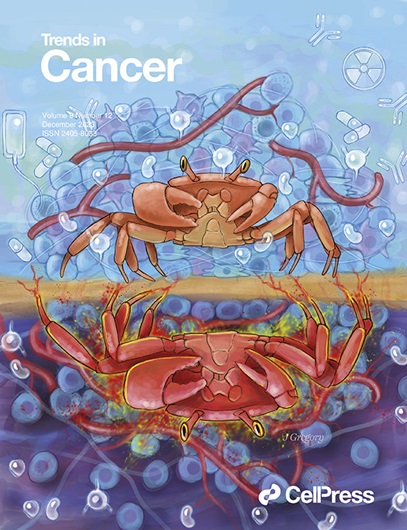cgrp介导的神经成瘾在肿瘤动态重塑中的作用。
IF 17.5
1区 医学
Q1 ONCOLOGY
引用次数: 0
摘要
神经肿瘤的相声正在重塑我们对癌症的认识。越来越多的数据表明,降钙素基因相关肽(CGRP)是肿瘤生长、免疫抑制和癌症相关症状的关键神经驱动因素,将CGRP介导的神经成瘾定位为破坏肿瘤-神经相互作用和改善癌症患者预后的有希望的治疗靶点。本文章由计算机程序翻译,如有差异,请以英文原文为准。
CGRP-mediated neural addiction in tumor dynamic remodeling.
Neuro-tumor crosstalk is reshaping our understanding of cancer. Increasing data demonstrate that calcitonin gene-related peptide (CGRP) is a key neural driver of tumor growth, immune suppression, and cancer-associated symptoms, positioning CGRP-mediated neural addiction as a promising therapeutic target to disrupt tumor-nerve interactions and improve outcomes in patients with cancer.
求助全文
通过发布文献求助,成功后即可免费获取论文全文。
去求助
来源期刊

Trends in cancer
Medicine-Oncology
CiteScore
28.50
自引率
0.50%
发文量
138
期刊介绍:
Trends in Cancer, a part of the Trends review journals, delivers concise and engaging expert commentary on key research topics and cutting-edge advances in cancer discovery and medicine.
Trends in Cancer serves as a unique platform for multidisciplinary information, fostering discussion and education for scientists, clinicians, policy makers, and patients & advocates.Covering various aspects, it presents opportunities, challenges, and impacts of basic, translational, and clinical findings, industry R&D, technology, innovation, ethics, and cancer policy and funding in an authoritative yet reader-friendly format.
 求助内容:
求助内容: 应助结果提醒方式:
应助结果提醒方式:


